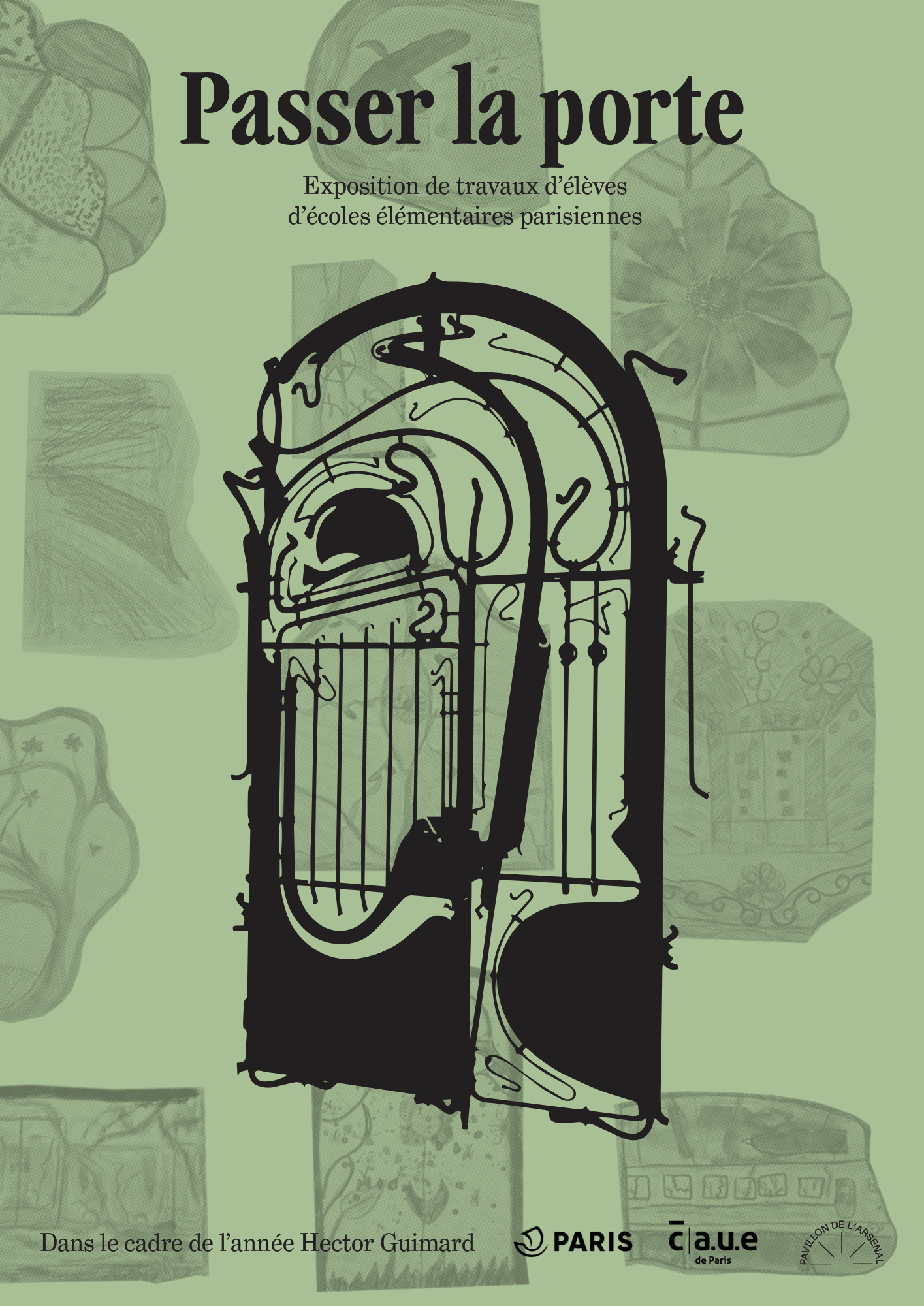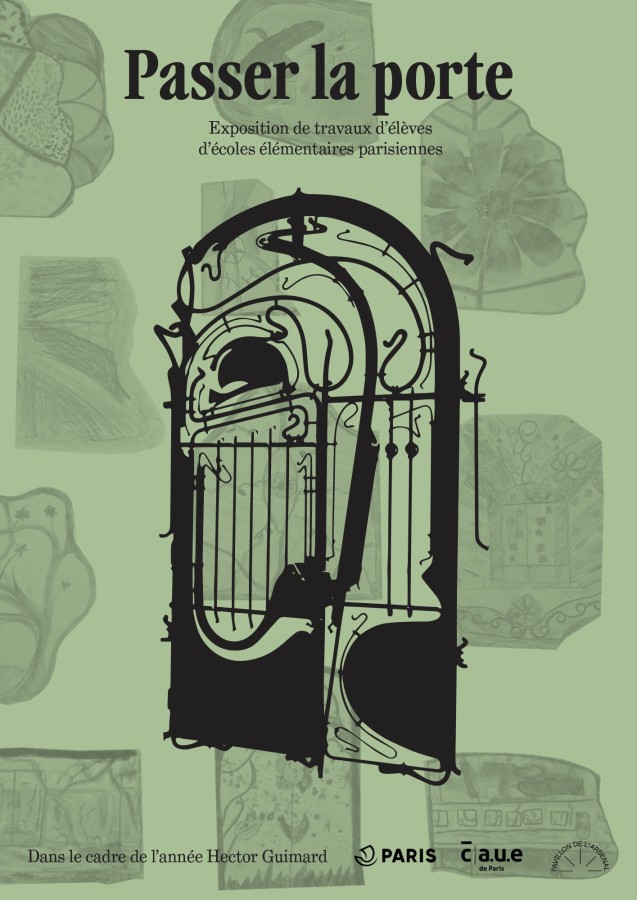As Paris celebrates the work of Hector Guimard in 2024, teachers and art instructors from the City of Paris' elementary schools led their pupils in an inventive rediscovery of the legacy of the Art Nouveau architect and decorator*.
Gathered together in an exhibition on the first floor of the Pavillon de l'Arsenal's Great Hall, the works produced by students from the 25 participating schools explore the famous metro entrances, lushly arabesque doors and elegant facades created by the artist. This exhibition offers a unique opportunity to rediscover the Parisian heritage left by Hector Guimard through the eyes of young students, while celebrating the imprint of Art Nouveau on the capital.
Through the door
From simple wooden doors to sculpted, symbol-laden ones, doors also tell stories and history. As an object, they offer a passageway between two worlds, from inside to outside and vice versa. Drawings, paintings, volumes, photographs or videos, the productions of Parisian students open the door to a journey inspired by the work of Hector Guimard.
Parisian heritage
To realize this project, the opportunity was offered to rediscover Parisian heritage. The creations bear witness to this, with particular reference to the Castel Béranger and Hôtel Guimard.
The architectural element
Metro aediculae and surrounds, as well as Art Nouveau windows and doors, shape the Parisian urban landscape, which the students explored to create their own productions.
The vocabulary
Intertwining curves, whiplash lines and plant inspiration make up the aesthetic vocabulary of Art Nouveau. Students have appropriated this language to express their own personal vision.
* At the end of the 19th century, Art Nouveau was to affect all the plastic arts: painting, sculpture, architecture, graphic arts and decorative arts. By 1900, it had spread throughout Europe, creating a great diversity of styles through hybridization with the popular traditions of each country. However, it gave rise to a set of common characteristics: elegantly curved lines, flowers, plants and other natural motifs, slender figures, idealized women with long flowing hair. It also marks the return of color, both in architecture and painting.
Through the door
From simple wooden doors to sculpted, symbol-laden ones, doors also tell stories and history. As an object, they offer a passageway between two worlds, from inside to outside and vice versa. Drawings, paintings, volumes, photographs or videos, the productions of Parisian students open the door to a journey inspired by the work of Hector Guimard.
Parisian heritage
To realize this project, the opportunity was offered to rediscover Parisian heritage. The creations bear witness to this, with particular reference to the Castel Béranger and Hôtel Guimard.
The architectural element
Metro aediculae and surrounds, as well as Art Nouveau windows and doors, shape the Parisian urban landscape, which the students explored to create their own productions.
The vocabulary
Intertwining curves, whiplash lines and plant inspiration make up the aesthetic vocabulary of Art Nouveau. Students have appropriated this language to express their own personal vision.
* At the end of the 19th century, Art Nouveau was to affect all the plastic arts: painting, sculpture, architecture, graphic arts and decorative arts. By 1900, it had spread throughout Europe, creating a great diversity of styles through hybridization with the popular traditions of each country. However, it gave rise to a set of common characteristics: elegantly curved lines, flowers, plants and other natural motifs, slender figures, idealized women with long flowing hair. It also marks the return of color, both in architecture and painting.




